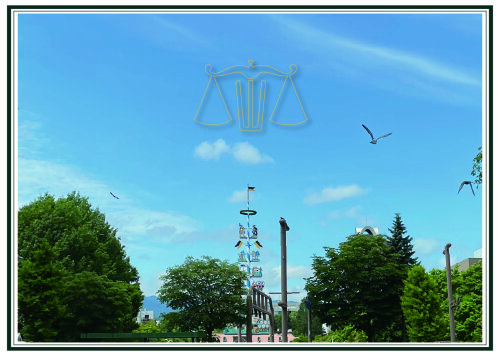Best Collaborative Law Lawyers in Sapporo
Share your needs with us, get contacted by law firms.
Free. Takes 2 min.
Free Guide to Hiring a Family Lawyer
List of the best lawyers in Sapporo, Japan
About Collaborative Law in Sapporo, Japan
Collaborative Law in Sapporo, Japan is a legal method for resolving disputes without going to court. It involves the parties and their lawyers working together to find mutually acceptable solutions. This process is often used in family law matters, such as divorce or child custody arrangements.
Why You May Need a Lawyer
You may need a lawyer in Collaborative Law in Sapporo for various reasons, such as negotiating with the other party, drafting legal documents, ensuring your rights are protected, and providing legal advice throughout the process. A lawyer can also help you understand your options and make informed decisions.
Local Laws Overview
In Sapporo, Japan, Collaborative Law is governed by specific rules and procedures. It is essential to understand the local laws and regulations that apply to your case. Some key aspects of local laws include the use of neutral professionals, confidentiality agreements, and the requirement for both parties to voluntarily participate in the process.
Frequently Asked Questions
1. What is Collaborative Law?
Collaborative Law is a method of resolving disputes without going to court, where the parties and their lawyers work together to find a mutually acceptable solution.
2. How does Collaborative Law differ from mediation?
In Collaborative Law, each party has their lawyer representing their interests, while in mediation, a neutral third party facilitates the negotiation process. Collaborative Law also involves a series of meetings and formal agreements.
3. Can any legal dispute be resolved through Collaborative Law?
Collaborative Law is commonly used in family law matters, such as divorce, child custody, and support issues. It may not be suitable for complex criminal cases or cases where one party is unwilling to participate.
4. How long does the Collaborative Law process typically take?
The length of the process varies depending on the complexity of the case and the willingness of the parties to cooperate. It can range from a few months to over a year.
5. What are the advantages of using Collaborative Law?
Some advantages of Collaborative Law include greater control over the outcome, privacy, cost-effectiveness, and the opportunity to maintain amicable relationships with the other party.
6. What happens if the Collaborative Law process is unsuccessful?
If the process is unsuccessful, the parties will need to seek alternative methods of dispute resolution, such as mediation, arbitration, or litigation in court.
7. Do I need a lawyer to participate in Collaborative Law?
It is highly recommended to have a lawyer represent you in Collaborative Law to ensure your rights are protected and to provide legal advice throughout the process.
8. How do I find a Collaborative Law lawyer in Sapporo, Japan?
You can search online for Collaborative Law lawyers in Sapporo, ask for referrals from friends or family, or contact your local bar association for recommendations.
9. What should I expect during a Collaborative Law meeting?
During a Collaborative Law meeting, the parties and their lawyers will discuss the issues at hand, exchange information, explore possible solutions, and work towards reaching a settlement agreement.
10. Are the outcomes of Collaborative Law legally binding?
Once a settlement agreement is reached in Collaborative Law, it can be made legally binding through a court approval process. This ensures that the terms of the agreement are enforceable.
Additional Resources
For more information on Collaborative Law in Sapporo, Japan, you can visit the Japan Collaborative Law Association website or contact the Sapporo Bar Association for local resources and support.
Next Steps
If you require legal assistance in Collaborative Law in Sapporo, Japan, it is recommended to schedule a consultation with a qualified lawyer to discuss your case and explore your options. Be sure to gather all relevant documents and information before the meeting to ensure a productive discussion.
Lawzana helps you find the best lawyers and law firms in Sapporo through a curated and pre-screened list of qualified legal professionals. Our platform offers rankings and detailed profiles of attorneys and law firms, allowing you to compare based on practice areas, including Collaborative Law, experience, and client feedback.
Each profile includes a description of the firm's areas of practice, client reviews, team members and partners, year of establishment, spoken languages, office locations, contact information, social media presence, and any published articles or resources. Most firms on our platform speak English and are experienced in both local and international legal matters.
Get a quote from top-rated law firms in Sapporo, Japan — quickly, securely, and without unnecessary hassle.
Disclaimer:
The information provided on this page is for general informational purposes only and does not constitute legal advice. While we strive to ensure the accuracy and relevance of the content, legal information may change over time, and interpretations of the law can vary. You should always consult with a qualified legal professional for advice specific to your situation.
We disclaim all liability for actions taken or not taken based on the content of this page. If you believe any information is incorrect or outdated, please contact us, and we will review and update it where appropriate.








